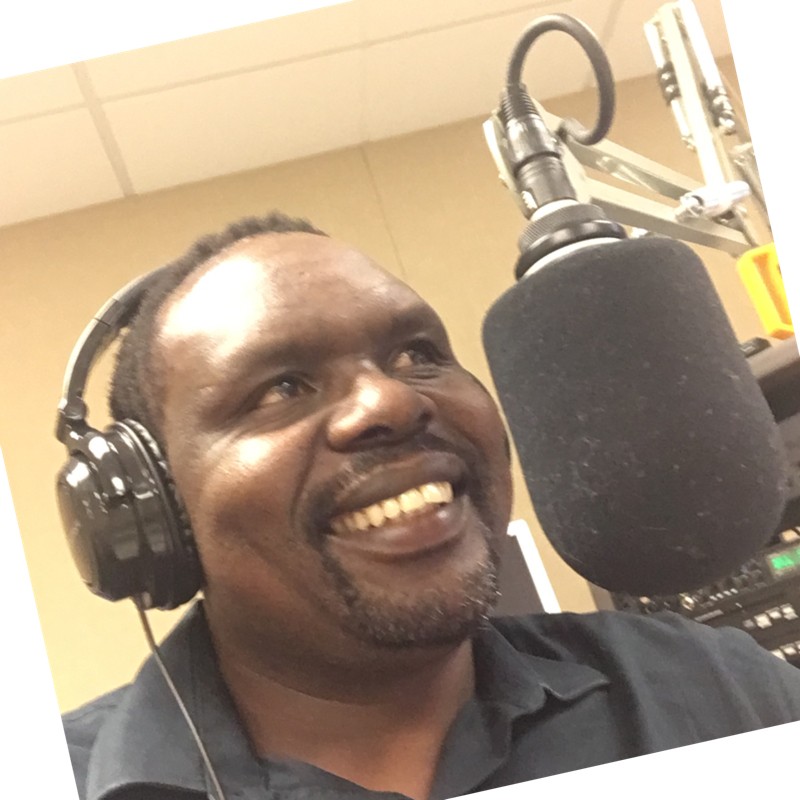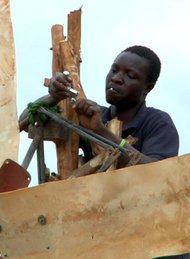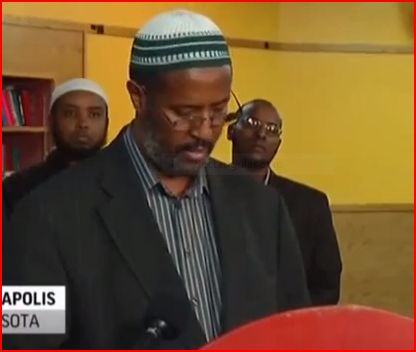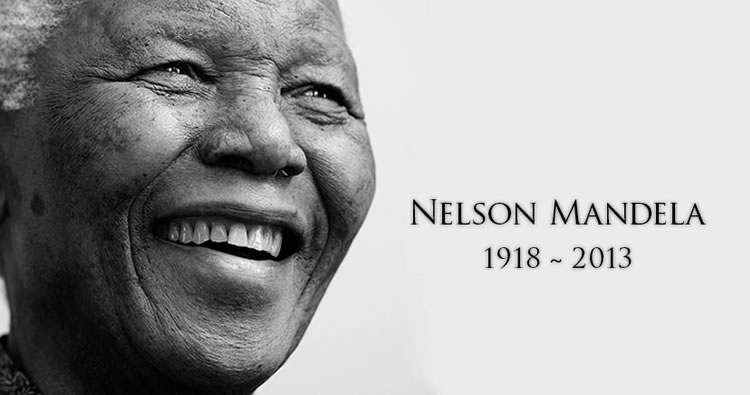Ukec questions “morality” of sanctions against Sudan.
ST. PAUL, Minn. – Sudan’s ambassador to the United States, Gen. John Ukec Leuth Ukec, blamed the people of Darfur for killing each other and said that there was little the government in Khartoum could do to stop the violence.
Ukec denied that there was a genocide going on in Darfur and said that both Janjaweed – the militia blamed for killing an estimated 450,000 people and driving more than two million people from their homes – were a Darfuri rebel group fighting other rebels for control of resources.
“Janjaweed are Darfuris. It’s Darfuris killing Darfuris,” Ukec, said, raising his voice, as people in the audience stared at him in awe.
The ambassador was addressing an audience of about 100 people, who gathered on August 24 at Metropolitan State University for a conference to discuss how best to address problems facing Africa and African immigrants.
Ukec, who had been calm, mostly holding on to the lectern as he spoke about immigration as a global issue, became animated and loud when he began to talk about Darfur.
Ukec has in the past vehemently denied that what is going on in Darfur is genocide, but his contention that the people of Darfur are responsible for the violence seems to be a new strategy.
“If you ask four different Darfuris why they are fighting, you’ll get four different answers,” Ukec said. “They have refused to stop fighting.”
He lashed at the media for publishing what he called inaccurate information and exaggerations about the conflict.
“The press skews the facts because they don’t know anything about Sudan,” Ukec said. “The media is stuck in what happened before the Government of National Unity was formed.”
The envoy denied that the government in Khartoum was launching attacks on the people of Darfur or funding and supplying weapons to Janjaweed. He said there was a possibility that some soldiers in Sudan’s national army were participating in the massacres because they sympathized with Janjaweed, but they were not following orders from Khartoum. The Darfuris were fighting over “grazing land,” Ukec said.
When Mshale sought to know why the government of President Omar al-Bashir failed to intervene, Ukec said it was not an easy task.
“The situation has become more complex,” he said. “It’s hard (for the government) to know who is Janjaweed and who is not.”
The ambassador further blamed the United Nations and the United States for imposing sanctions against his country, saying they made it harder to convince Darfur’s warring parties to stop fighting.
“When the sanctions were put on the government, the people of southern Sudan, who have been fighting that government for 50 years, were punished,” Ukec said.
The money that the international community pledged to develop southern Sudan if rebels stopped fighting has been held back because of the sanctions, Ukec explained.
“What is the morality of refusing to help the people of southern Sudan because of Darfur?” he asked. “Do they control what’s happening in Darfur? That makes it hard for the rebels in Darfur to stop fighting because they don’t see any incentive.”
Ukec, a member of the Sudanese People’s Liberation Movement, fought against the government in Khartoum before joining it in 2005, when SPLM signed the Comprehensive Peace Agreement to form a Government of National Unity, which brought an end to decades of civil war with Sudan’s South.
In response to Ukec’s speech, Bula Atomssa, an Ethiopian citizen, who had earlier asked him if the Sudanese government was arresting and extraditing Oromo refugees to Ethiopia for trial, said he did not think that the ambassador was sincere on the Darfur issue.
“It is the government’s responsibility to bring peace and it should do everything within its power,” Atomssa said. “The ambassador himself spent years fighting and lived in refugee camps. That should make him sympathetic to refugees.”
About Edwin Okong'o - Mshale Contributing Editor
Edwin Okong'o is a Mshale Contributing Editor. Formerly he was the newspaper's editor.







